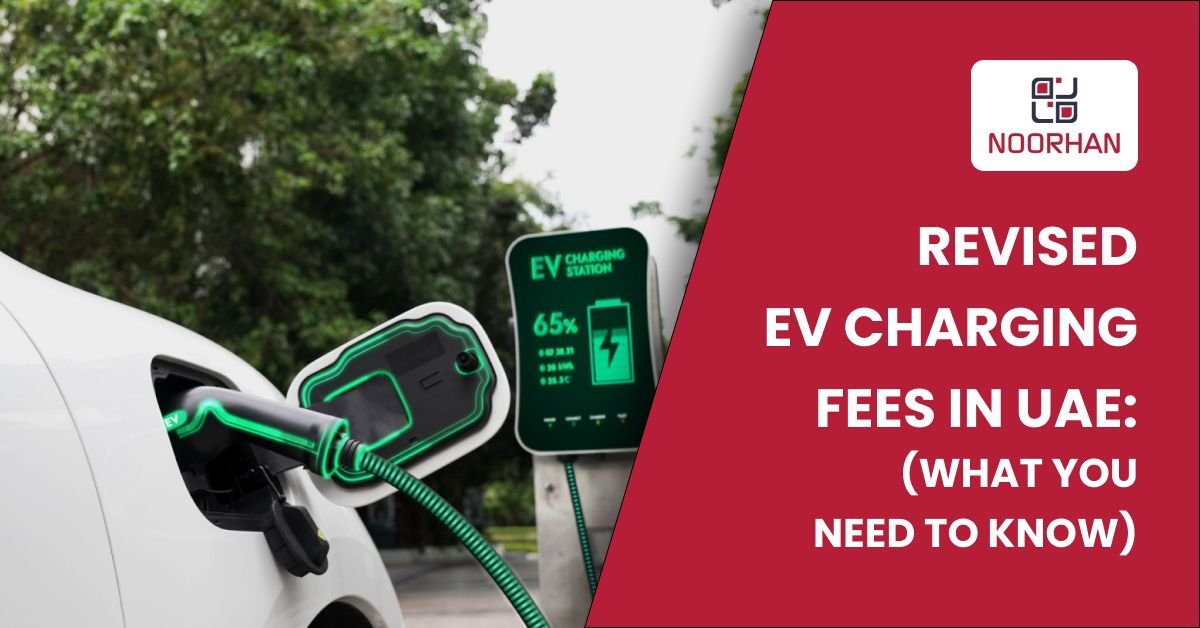-
Understanding the Revised EV Charging FeesUnderstanding the Revised EV Charging Fees
-
Implications for EV OwnersImplications for EV Owners
-
Benefits of the Unified Charging FeesBenefits of the Unified Charging Fees
-
Broader Impact on UAE's Sustainable Energy GoalsBroader Impact on UAE's Sustainable Energy Goals
The United Arab Emirates (UAE) is making remarkable strides in its commitment to sustainability by championing the adoption of electric vehicles (EVs). This initiative is part of a broader strategy to reduce carbon emissions and promote clean energy solutions. One of the significant recent developments in this area is the introduction of a unified charging fee structure for EVs. This new framework is designed to standardize costs and make electric vehicles an even more appealing option for consumers. In this blog, we’ll delve into the details of the revised EV charging fees in the UAE, exploring their implications for EV owners, the benefits of the new system, and the broader impact on the country’s sustainability goals.
Understanding the Revised EV Charging Fees
Background and Implementation
On August 6, 2024, the UAE Cabinet introduced a new fee structure for EV charging services through Cabinet Resolution No. 81 of 2024. This resolution mandates a standardized pricing model for public EV charging services, which will officially come into effect on September 6, 2024. The introduction of this fee structure aims to address the previous inconsistencies in charging rates across different stations, some of which previously offered free charging.
Fee Structure Details
The revised fee structure outlines two primary types of charging services:
- Express Charging: This service will be charged at a minimum of Dh1.20 plus VAT per kilowatt-hour (kWh). Express charging stations are designed to provide rapid recharging for EVs, making them ideal for drivers in need of a quick top-up while on the go.
- Slow Charging: This service will be charged at a minimum of Dh0.70 plus VAT per kWh. Slow charging stations are typically used for longer, more stable charging periods, making them suitable for overnight or extended charging sessions.
These fees will apply to all public charging stations, ensuring a consistent cost structure across the UAE. However, it remains to be seen whether private charging infrastructures, such as Tesla’s superchargers, will be affected by this new regulation.
Implications for EV Owners
Cost Impact
For many EV owners, the introduction of standardized charging fees could result in a change in their monthly expenses. Depending on their usage patterns and the type of charging station they use, some drivers might experience a slight increase in their charging costs. Despite this potential rise, it’s important to note that the overall cost of charging an EV remains substantially lower than that of traditional fuels. As such, many drivers view this adjustment as a reasonable step towards greater transparency and fairness in the charging process.
Improved Accessibility
One of the key benefits of the new fee structure is its potential to improve accessibility to charging stations. By standardizing the cost of charging, the UAE aims to reduce congestion at high-demand superchargers. This move is expected to promote the use of renewable energy and ensure that charging facilities are more readily available, particularly along major highways and in urban areas.
Encouragement of Home Charging
With the introduction of charging fees, some EV owners may choose to invest in home charging solutions to better manage their costs. Home charging can offer greater convenience and cost-effectiveness, especially for those who have access to renewable energy sources such as solar panels. By providing a reliable and potentially more economical way to charge their vehicles, home charging options could become increasingly attractive.
Benefits of the Unified Charging Fees
Cost Transparency and Fairness
The unified fee structure is designed to ensure that all EV users pay the same rate, regardless of the charging station they visit. This transparency fosters trust among consumers and eliminates the confusion that previously existed due to varying fees at different locations. By creating a predictable and fair pricing model, the UAE government is making electric vehicles a more straightforward choice for drivers.
Encouraging EV Adoption
A consistent and affordable charging rate is likely to make electric vehicles a more attractive option for consumers. By aligning the cost of charging with the UAE’s vision of increasing the number of EVs on the road, the new fee structure supports the country’s goals of reducing carbon emissions and minimizing reliance on fossil fuels. This move is expected to accelerate the transition towards electric mobility and contribute to a cleaner environment.
Support for Charging Infrastructure Development
The introduction of standardized fees is also anticipated to stimulate investments in EV charging infrastructure. Both private and public entities will be more inclined to install new charging stations, knowing that the pricing model is regulated and predictable. This increased investment is essential for building a robust network of charging facilities that can support the growing number of electric vehicles on the road.
Broader Impact on the UAE's Sustainable Energy Goals
Promotion of Renewable Energy
The revised fee structure is part of the UAE’s broader strategy to promote sustainable transportation and transition towards a greener economy. By regulating the utility of electric vehicle services, the resolution supports the use of renewable energy as a reliable alternative source of power. This move aligns with the UAE’s commitment to reducing energy consumption and fostering a sustainable energy landscape.
Setting a Benchmark for Other Countries
The UAE’s approach to standardizing EV charging fees sets an important benchmark for other nations looking to promote electric mobility. By implementing a transparent and equitable pricing model, the UAE is leading the way in creating a favorable environment for the adoption of electric vehicles. This pioneering effort could inspire other countries to adopt similar measures and contribute to global efforts to combat climate change.
Encouragement of Investment in Renewable Energy
The resolution is expected to encourage greater investment in renewable energy sources, such as solar panels. By aligning with the UAE’s commitment to clean energy, this initiative supports the installation of more renewable energy infrastructure. This investment is crucial for reducing energy consumption in the transport sector and advancing the use of clean energy technologies.
Conclusion
The introduction of revised EV charging fees in the UAE represents a significant advancement in the country’s efforts to promote electric mobility and sustainability. By standardizing the cost of charging, the UAE government is not only making electric vehicles more accessible and appealing to consumers but also supporting the development of a comprehensive and efficient charging infrastructure. This new fee structure is expected to have a positive impact on the country’s transition to renewable energy and set a precedent for other nations to follow. As the UAE continues to lead in clean energy solutions, the revised charging fees will play a crucial role in shaping the future of transportation in the region.









